Why glass, wood, plastic, brick or metal would be used for certain jobs
Lesson
Science
Year 2
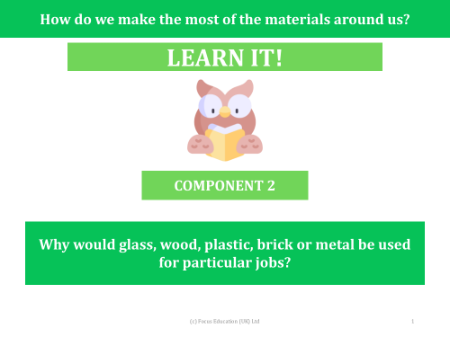
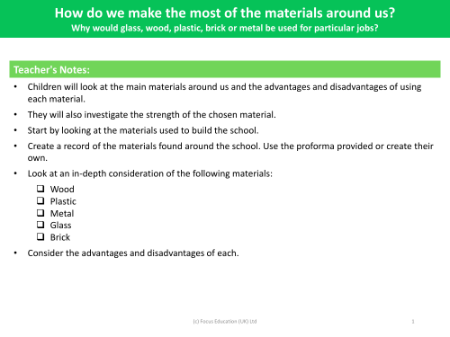
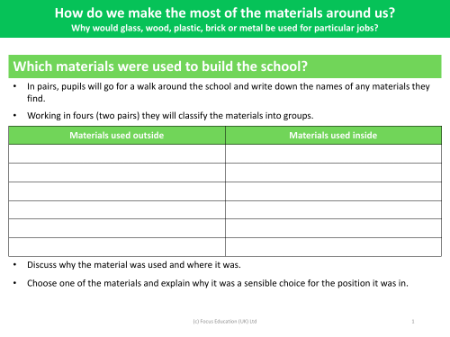
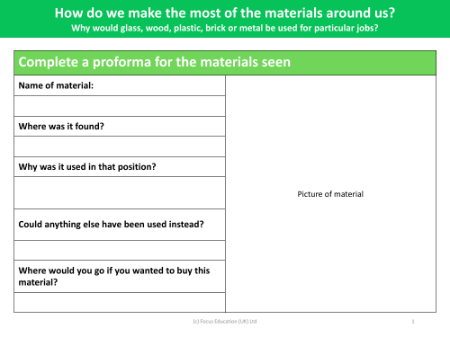
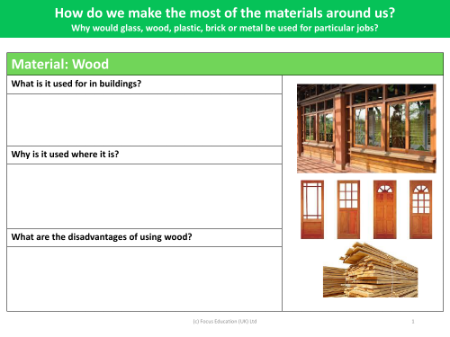
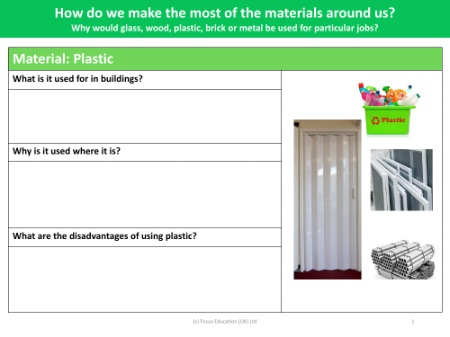
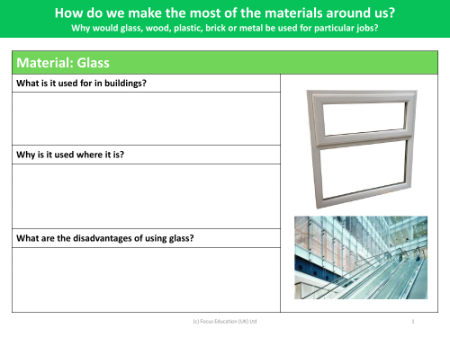
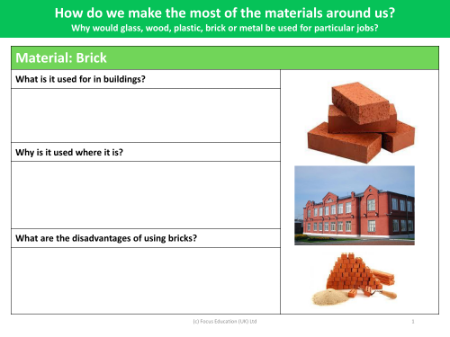
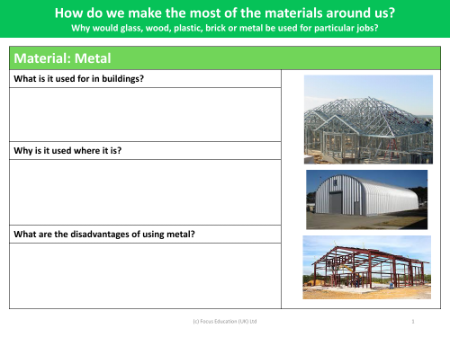
Presentation
Resource 1/9
Premium

Focus Education
Science Lesson Description
Editable presentation
Group work
Active
Discussion based learning
Year 2 Science lesson from the unit Materials. This lesson uses an enquiry-approach method, and will facilitate students answering the question 'Why glass, wood, plastic, brick or metal would be used for certain jobs'
Lesson contents
Resources

Presentation
Resource
Science
Y2

Teacher notes
Resource
Science
Y2

Which materials were used to build the school? - Worksheet
Resource
Science
Y2

Material fact file - Worksheet
Resource
Science
Y2

Merits and drawbacks of wood - Worksheet
Resource
Science
Y2

Merits and drawbacks of plastic - Worksheet
Resource
Science
Y2

Merits and drawbacks of glass - Worksheet
Resource
Science
Y2

Merits and drawbacks of brick - Worksheet
Resource
Science
Y2

Merits and drawbacks of metal - Worksheet
Resource
Science
Y2
Lesson contents
Resources

Presentation
Resource
Science
Y2

Teacher notes
Resource
Science
Y2

Which materials were used to build the school? - Worksheet
Resource
Science
Y2

Material fact file - Worksheet
Resource
Science
Y2

Merits and drawbacks of wood - Worksheet
Resource
Science
Y2

Merits and drawbacks of plastic - Worksheet
Resource
Science
Y2

Merits and drawbacks of glass - Worksheet
Resource
Science
Y2

Merits and drawbacks of brick - Worksheet
Resource
Science
Y2

Merits and drawbacks of metal - Worksheet
Resource
Science
Y2
Explore other content in this scheme
Part of a unit by Focus Education
Other lessons in this unit

1. Why are some materials more suitable than others for making our toys?
Lesson
Science
Y2

3. Which materials can be squashed, twisted or bent according to need?
Lesson
Science
Y2

4. Why are certain materials suitable for many different uses?
Lesson
Science
Y2

5. Who are the important people that have developed useful, new materials?
Lesson
Science
Y2
This website uses cookies to enhance the user experience.
To get more information about these cookies check our
Hey! It looks like you're in the United States.
Stay on the UK site
Switch to the US site

